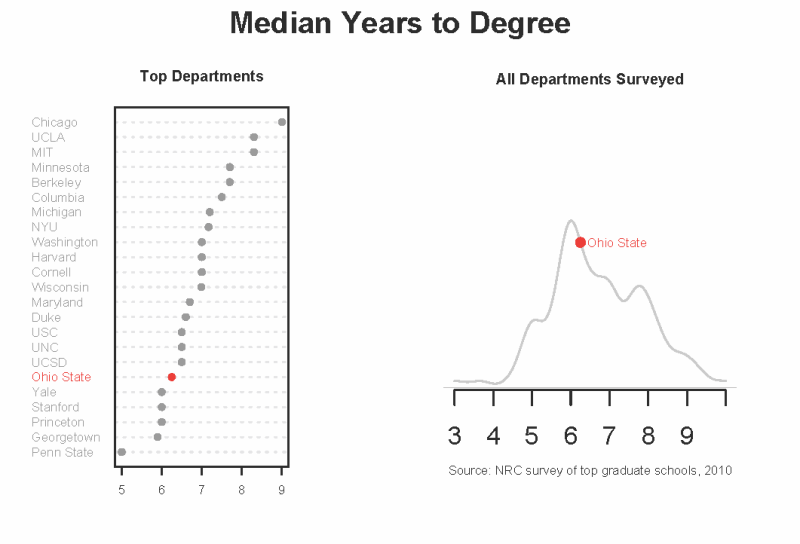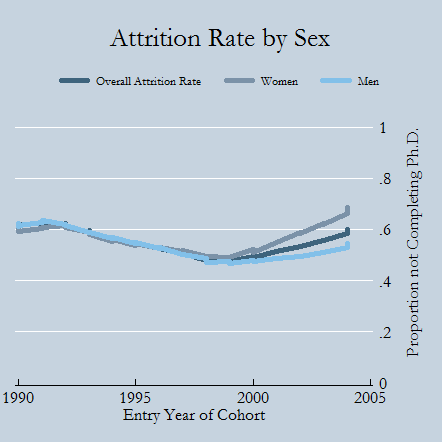Apply to the PhD Program in Political Science!
For students interested in graduate study in political science, we offer a 5 year PhD program. For most students, arriving at a course of study will involve the selection of two focus fields and a course-out minor from either one of the focus fields, a graduate interdisciplinary specialization, or a graduate minor.
Please review the application requirements for our program below and then apply online through the Office of Graduate Admissions.
The application deadline for Autumn 2026 is December 2, 2025.
Please submit the following items through your online application:
- 1-2 page Statement of Purpose describing your interest in political science, 2 focus fields of study, and career goals.
- Curriculum Vitae/Resume of no more than 2 pages.
- Official GRE Scores (University Code for Test Scores: 1592).
- A Writing Sample.
- 3 Letters of Recommendation.
- Within a few days of submitting your application, an invitation will be emailed to each reference with a link to our online form. Ohio State doesn't accept letters of reference submitted from third parties. If your reference is having trouble submitting the letter, they may email a signed letter of recommendation on business letterhead along with a completed Graduate School Reference Form to gpadmissions@osu.edu.
Submit the following directly to the Office of Graduate Admissions:
- Proof of English Proficiency if applicable (University Code for Test Scores: 1592).
- Keep in mind that if you are awarded a Graduate Teaching Associateship and English is not your first language, you will be required to certify your oral proficiency in English before assuming your associateship duties.
- Official transcripts from every institution you have attended (additional transcript info here).
Send copies of international transcripts, diplomas or degree certificates and English translations in sealed university envelopes to:
Graduate and Professional Admissions
The Ohio State University
Student Academic Services Building
281 W. Lane Ave.
Columbus, OH 43210-1132 USAIf your transcript will be sent by a U.S. institution and they are not able to send official electronic transcripts, you may order them to be mailed to:
Graduate and Professional Admissions
P.O. Box 182004
Columbus, OH 43218-2646
Please Note: All supporting documents should arrive by no later than December 12th.
Additional information about the additional requirements to apply to OSU as an international student can be found here.
Each applicant is judged individually on the basis of grades, test scores, recommendations, and the applicant's personal statement. Admission to our graduate program is highly competitive. Students with unique talents and backgrounds are strongly encouraged to apply.
Around 12 funded students, recruited from a large applicant pool, enter each year. Most admitted students have an average undergraduate GPA of 3.73, and highly competitive GRE scores. Approximately 70 PhD candidates are currently enrolled in various stages of study.
Students whose native language is not English (and who have not received a degree from an American university) must provide official IELTS, TOEFL, or Duolingo scores.
- Application Questions
Do I need to declare a field of study when submitting my application?
Preferably yes, because part of our evaluation has to do with how well your interests fit the faculty in your chosen area. You can also change your mind once you've arrived. If you're really uncertain, though, it's not required and you can just list one focus field. Students will eventually go on to select 2 focus fields.
Do you require a writing sample?
Yes, submission of a writing sample is required. Students typically submit their best piece of academic writing.
Do you require GRE scores?
Yes, GRE scores are required in order to apply for our PhD program.
Is a personal interview required?
A personal interview is not required though applicants who have been admitted are encouraged to visit the department, so that they can speak with faculty members and current students. We encourage prospective students to contact individual faculty at the addresses listed on the Faculty page to learn more about their research areas.
My letters of recommendation may arrive after the deadline. Is this okay?
Yes, supporting documents may be received up to two weeks after the deadline has passed (December 12th).
One of the people who is writing my letter of recommendation does not want to submit it online. Will you accept it any other way?
If your reference is having trouble submitting the letter, they may email a signed letter of recommendation on business letterhead along with a completed Graduate School Reference Form to gpadmissions@osu.edu.
- Program Questions
Can I complete the PhD program as a part-time student?
Our PhD program is designed for full-time study and part-time study is strongly discouraged.
Can I start the program in spring semester?
Admission decisions are made throughout the fall and winter and students enter the program in the autumn semester in all but exceptional cases.
What areas of Political Science can I study at OSU?
For most students, arriving at a course of study will involve selection of two focus fields from among the five fields of American Politics, Comparative Politics, International Relations, Political Methodology, and Political Theory and a course-out minor from either one of the above fields, a graduate interdisciplinary specialization, or a graduate minor.
In addition, students may choose one or more departmental specializations in the fields of Formal Theory, Political Economy, Political Psychology, or Race, Ethnicity, and Gender. More individualized programs emphasizing either breadth or depth may be developed in consultation with an academic advisor.
You can find more information about each focus field area here: https://polisci.osu.edu/graduate/fields-study
How are students funded?
Students in our PhD program typically receive funding support for our 5-year program which includes a tuition waiver and a small stipend for living expenses. You can find more information regarding the fellowships and funding here: https://polisci.osu.edu/graduate/prospective-students/financial-aid
- Master's and Post Doctoral Programs
Can I complete a Master's in Political Science at OSU?
Our Political Science graduate program is solely a 5-year PhD program. We do not offer a standalone master's degree. Master's degrees are only available for students who are in our program working towards completing their PhD.
Are Post-Doctoral Fellowships offered in Political Science?
The Department of Political Science does not offer a post doctoral program. However, OSU’s Mershon Center for International Security Studies offers a Post Doctoral Scholar Program. Please contact their department for further information: mershoncenter@osu.edu
- Transcripts and Transfer credit
Do you accept transfer credit?
We typically do not allow students to use transfer credit to count towards their two fields of study, but transfer credit may be able to be used towards the total number of credit hours required to graduate by the Graduate School. All students must complete two years of coursework and take the candidacy exams at the beginning of their third year.
I only took 4 credit hours at a certain university. Do you still need my transcript?
Yes, any place that you have received credit from, we will need an official transcript.
Do I need to submit a transcript for credit hours I took in high school?
Yes, even if you received college credit for a course completed during high school, we will still require the official transcript from that university or college.
The Ohio State works with a variety of programs that provide fee waivers to applicants, and also manages several of its own programs. You can learn more about fee waiver programs and check your eligibility here.
International students are not eligible for application fee waivers.
To request a waiver
- Check the box in the Application Fee Waiver section of your admissions application (Ohio State's regular or supplemental application) indicating the program for which you qualify.
- Complete and submit your admission application. You will not be asked to pay the application fee.
- Most waiver programs require additional actions. Select your waiver program from the drop-down below and follow the instructions.
If your waiver request is denied, you will be asked to return to your admission application and pay the application fee. Processing times vary. For most programs, you will receive an email response regarding the outcome of your request within three to five business days.
Admitted students are typically offered funding for 5 years. To be considered for admission and for university fellowships and departmental assistantships, program applications must be received by the deadline of December 2nd and all supporting application materials must be received by December 12th. All financial aid is distributed for autumn semester admission.
Funding packages generally include a waiver of tuition and a stipend for living expenses, which increases at each stage in the program. For students making normal progress, departmental funding typically continues for five years. Support may be extended beyond five years through awards and fellowships granted outside the university. It is expected that most students will finish Ph.D. requirements within about five years, though students doing fieldwork may require additional study and may petition the department to gain eligibility for more than five years of funding.
Graduate Associateships
- Associateships, awarded for teaching, research, or administration, are the primary source of financial assistance provided to graduate students. Most graduate associateships provide a 12-month tuition waiver, a nine-month stipend, and subsidized health insurance in exchange for 20 hours of work per week for nine months. Associateship positions generally begin in the autumn term and are renewable, depending upon the student’s job performance, grades, and availability of funds.
- To be eligible for consideration, you need only meet the admission and deadline requirements of your program and check the appropriate box(es) on the admission application under "Funding Opportunities."
- Learn more about associateships.
Graduate Fellowships
- A limited number of fellowships are awarded on a competitive basis to applicants who show outstanding scholarly accomplishment and exceptional potential for graduate study. Most fellowship awards pay a monthly stipend, provide a tuition waiver, and subsidize health insurance. Fellowships generally provide twelve months of support for at least one year.
- Read about eligibility criteria for fellowships.
Other Funding Opportunities
- As they progress through the program, some students also obtain support from the Mershon Center, the Political Research Laboratory, and Foreign Language and Area Studies fellowships.
- Advanced students may have an opportunity to teach their own courses.
- In addition, during their program of study, graduate students may support themselves directly through external sources. These include federal aid and loans, sponsorships, and scholarships provided by entities external to the university.
Program Timeline
The graduate program in the Department of Political Science at Ohio State is a 5-year PhD program. Terminal master's degrees are not available, however MAs are available for those who are in the program working towards completing their PhD. A typical graduate trajectory begins with two years of coursework in preparation for candidacy exams. Once students pass their candidacy exams in their third year, they move into ABD (all but dissertation) status and can focus on their dissertation.
Year One
We offer incoming students a Workshop on Mathematics for Political Scientists. The workshop is designed specifically with first-year Ph.D. students in mind and has no prerequisites. Its purpose is to refresh students’ memory of, or else introduce them to, basic mathematical concepts and techniques that will prove important in future training and research. Once school begins, first-year students will focus on intro level classes and fulfilling requirements for their chosen major and minor. Many of our first-year students attend ICPSR in the summer between their first and second years. ICPSR provides leadership and training in data access, curation, and methods of analysis for a diverse and expanding social science research community.
Year Two
During students' second year of study, they will continue to take classes and prepare for their general exams, which take place in the beginning of their third year of study. Additionally, some students use their second year to obtain a FLAS fellowship and participate in language training.
Year Three
Once students pass their candidacy exams in their third year, they move into ABD status and can focus on their dissertation. The department offers a yearlong dissertation workshop during the third year to give students the opportunity to present research ideas and receive feedback from both students and faculty. Additionally, in order to prepare students for teaching, there is a teaching workshop offered in both the summer and the first semester of the third year.
Years Four, Five, and Beyond
By students' fourth year, they will be looking towards putting together their dissertation committee and completing a dissertation prospectus. The department offers a workshop to help students to prepare to go on the job market. Throughout all this time, there are many opportunities to receive grants, do research with faculty, and participate in various programs offered through the university and the government to assist in completing a dissertation.

"I was largely attracted to Ohio State's PhD program for its substantive and methodological breadth and depth as a "big-ten" program. Students receive a broad training when it comes to approaches in international relations, ranging from realism and constructivism to the study of international organizations and institutions, empirical study of war, and even support for critical theory. This broad training pushed me to develop an independent and eclectic research agenda that should ultimately communicate with different areas of international relations. More importantly, the department provides a lot of support for graduate student research--even prior to candidacy--compared to other programs, which makes a huge difference in graduate student outcomes down the road. The program's strength in political methodology also provides skills that set up students for success in academic and non-academic job markets alike. The faculty really go above and beyond to provide students with the intellectual and financial resources needed to succeed." - Maryum Alam, PhD candidate
People considering a career in political science often have basic questions about their prospective department—questions like, "Where am I likely to end up if I come here?" or "How long am I likely to be here?" or "What are the odds that I will complete my program?" Many graduate programs, surprisingly, either don’t publish that information at all or publish it in disaggregated form as a way of hiding information in plain sight.
Our commitment to transparency begins before students even enroll at our University. Graduate students who are deciding whether or not to choose our program should have the clearest possible answers to these questions. Those answers are below.

The National Research Council (NRC) cites an average time-to-degree of about 6.5 years in Ph.D. programs in political science. In order to determine where ours fell relative to the national average, we looked at median completion times for all cohorts from 1990 (when the first reliable data exist in our dataset) to 2005 (at which point missing data make the answer unreliable). We also broke the data down by sex of student. The average answer, consistently over time and across the two sexes, generally hovers between six and seven years—a number that corresponds very closely with the national average. It appears that there might be a slight downward trend in recent years, but there are too few students to say definitively whether that is the case.
Median time to Completion
We also broke the same data down by subfield, and here the results are considerably more nuanced. As one often hears, comparativists tend to take longer to complete their dissertations due to the requirements of language classes and fieldwork. Americanists are generally the fastest to complete theirs, and students of International Relations fall somewhere in between. What is most interesting, however, is the fact that, since the late 1990s, time to degree across subfields has converged considerably: the most recent cohorts all show far less variance, completing their degrees in something close to six years regardless of subfield.
Attrition and Completion
 Attrition—whether due to spousal considerations, an attractive career opportunity elsewhere, or personal reasons—is far more common in Ph.D. programs than entering students realize. Many professors tell stories of entering graduate school, being told to look at the students to their left and right, and then being told that only one in three entering students would end up with a Ph.D.
Attrition—whether due to spousal considerations, an attractive career opportunity elsewhere, or personal reasons—is far more common in Ph.D. programs than entering students realize. Many professors tell stories of entering graduate school, being told to look at the students to their left and right, and then being told that only one in three entering students would end up with a Ph.D.
Regardless of the reason, the classical "one in three" statistic is not far off in general for political science programs, nor is it for ours: our actual attrition rate varies widely from one year to the next due to small cohort size, but a smoothed series over time moves roughly between 50% and 60%. (We should note for the sake of comparability that this figure captures all forms of attrition, including simply dropping out and taking a terminal M.A.; in many departments’ official statistics, these figures are disaggregated.)
The Program In Statistics and Methodology (PRISM) provided the research assistance necessary to collect and visualize these data. The Political Research Lab (PRL) created the interactive chart.
Questions regarding the structure of our program and other academic questions can be directed to Professor Amanda Robinson, Director of Graduate Studies,
All other application questions can be directed to Ivy Luft, Program Coordinator for the Department of Political Science, at: luft.44@osu.edu.
